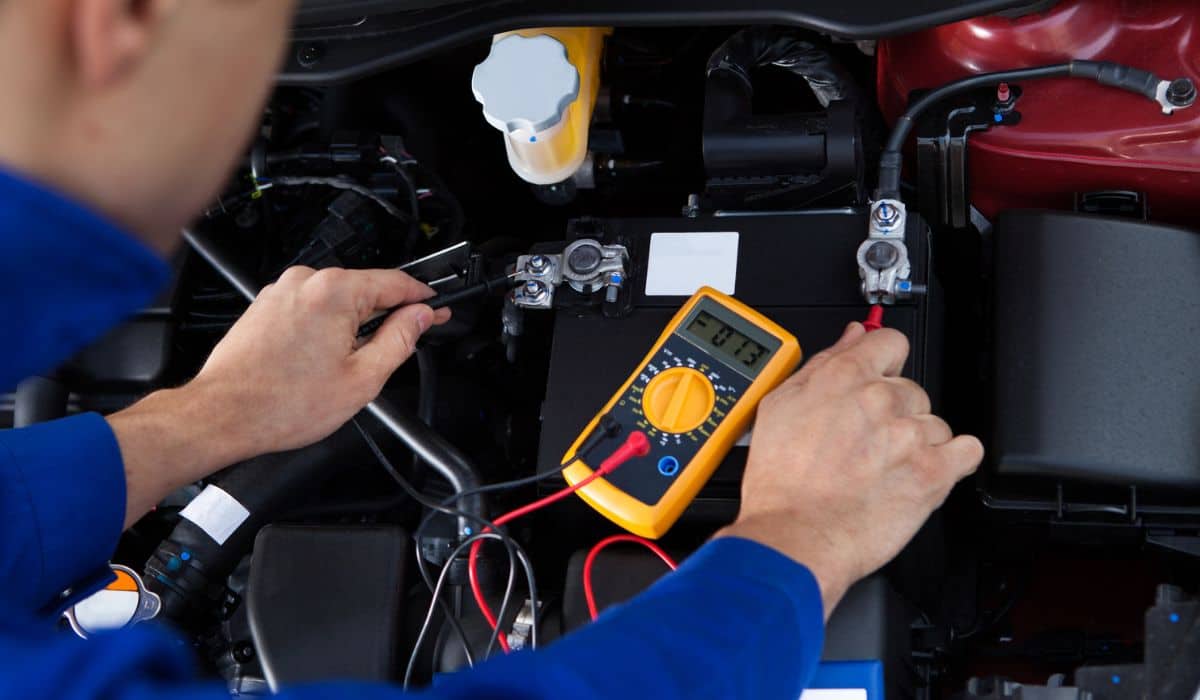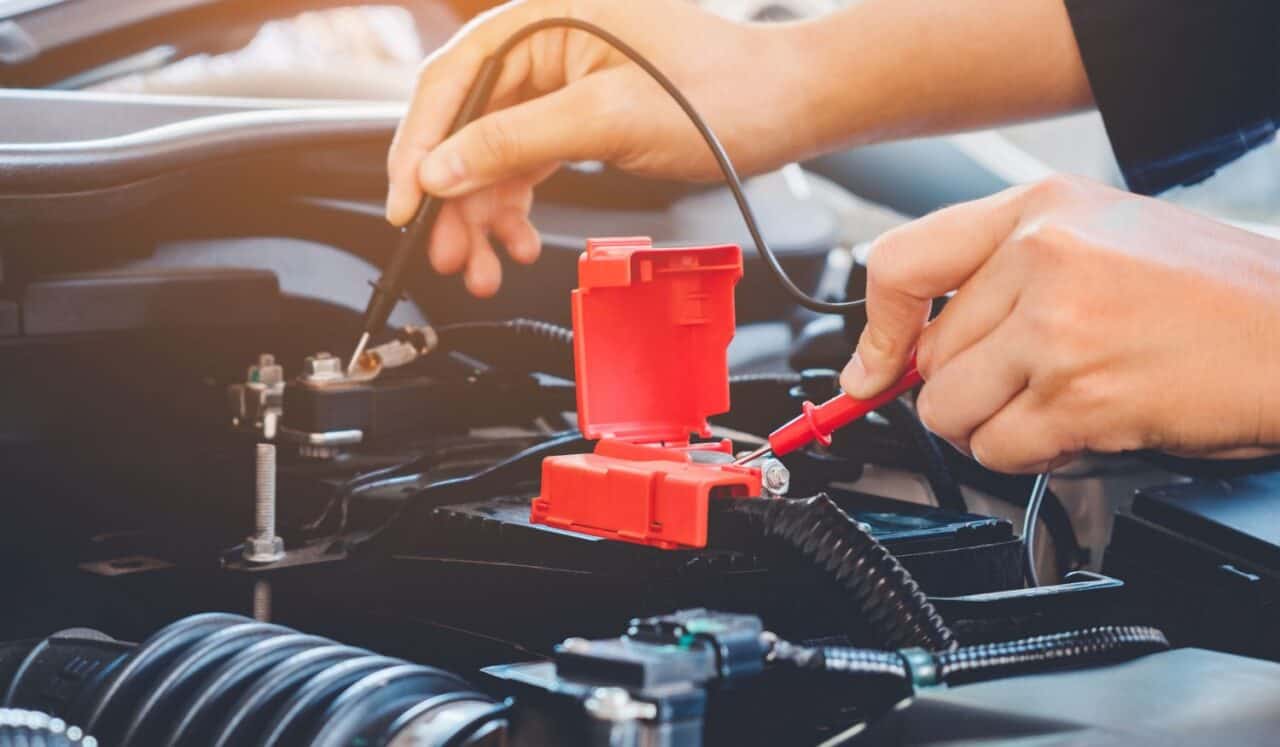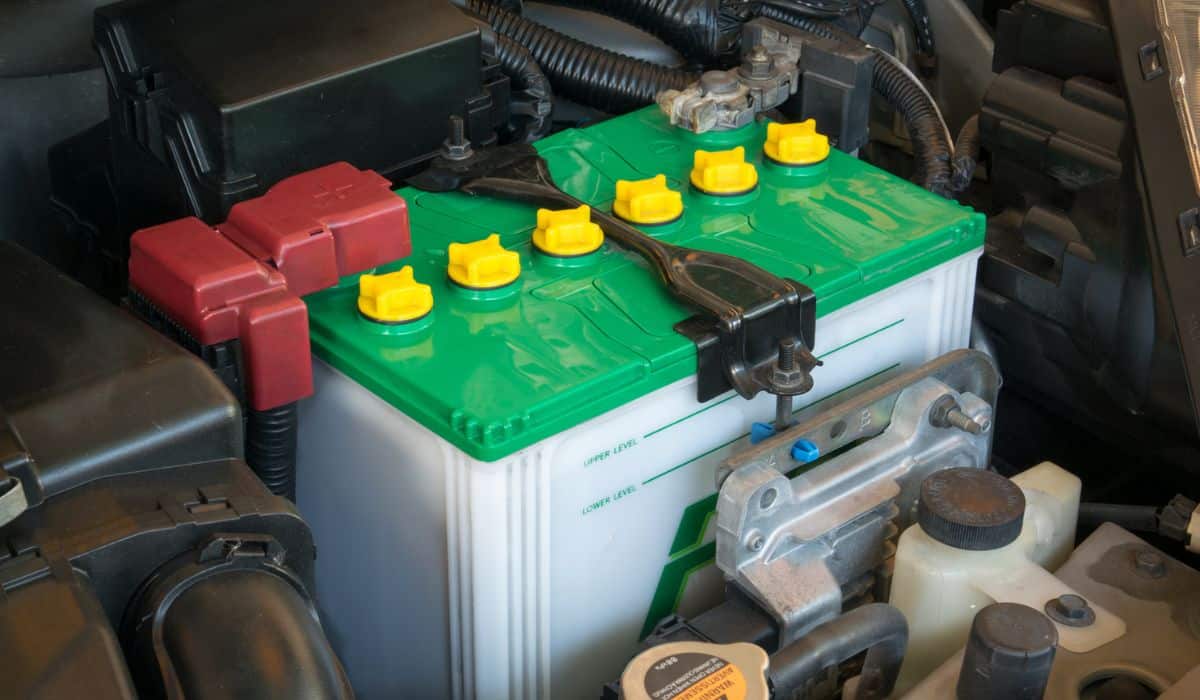Can A Short Circuit Damage A Car Battery? And How To Prevent It
Car battery issues are relatively common, and they can be quite frustrating. Fortunately, knowing what causes damage to the battery and how to prevent such issues can keep your vehicle running smoothly for as long as possible.

Short circuits can damage car batteries and other parts, like fuses, wires, and connectors. In severe cases, the battery can catch fire or explode. You can prevent short circuits by keeping the wires and connectors clean, using compatible parts, and following the instructions in the owner’s manual.
Although short circuits can be severe, you can quickly diagnose, fix, and prevent them with the correct information. Let’s take a closer look at everything you need to know.
Can a Short Circuit Damage a Car Battery?
Yes, it’s possible — and even likely — that a short circuit can damage a vehicle battery. Short circuits happen when an electrical current bypasses its intended direction and travels along an unintended path.
Short circuits can arise when a wire or component is damaged. They can also happen when internal wires or parts come into contact with unintended cables or components.
When a car’s electrical system short circuits, the battery can become drained or overcharged, causing premature damage. In rare cases, short circuits can cause a car battery to burst into flames or explode.
Additionally, short circuits can harm other car parts, like fuses, wires, and connectors. It’s therefore crucial to handle any short circuits with care, in order to reduce premature damage to a vehicle.
What Happens to a Battery With a Short Circuit?
Large amounts of current travel through the battery when a short circuit happens in a vehicle’s electrical system. The large amounts of electricity cause the battery to overcharge, resulting in damage.
Short circuits have various causes, like loose connections, damaged insulation, or corroded components.
There are also two types of short circuits to be aware of, including the following:
- Short to the Ground: These short circuits occur when the electrical current travels through the vehicle body to the ground instead of the intended circuity. These typically happen due to loose connections with wires and the vehicle body.
- Short to Power: Short to power arises when the current travels back into the power source instead of moving through the intended path. Loose wire connections between the battery terminals typically cause these.
Signs Your Battery Has Short Circuited
There are a few different tell-tale signs that your battery has short-circuited. You might have a short circuit if you notice unusual sounds or smells. Pulling over and turning the engine off immediately is best to prevent further damage.
After you turn off your vehicle, you can inspect the battery for further issues by looking for the following signs:
Physical Damage
In some cases, inspecting the physical components can help you tell if a battery is short-circuited or damaged. Look for the following sings:
- Damaged terminals
- Bulges or bumps on the external case
- Cracks on the plastic
- Leaks
- Discoloration
Issues with the terminals can be dangerous and cause the battery to short-circuit. You’ll notice a burning or melting smell if a short circuit occurs. In some cases, the battery can explode from excessive amounts of heat.
If the battery is still intact, you may notice a bulge in the plastic. Lumps in the case result from the battery being overcharged.
If you notice these issues, it’s best to take your vehicle to a mechanic or call roadside assistance as soon as possible.
Slow Crank or No Crank
Short circuits can cause a car battery to crank the car slowly or not at all. Crank issues don’t guarantee a short circuit but can be a symptom.

Low Battery Voltage
Lower battery voltage can indicate a shorting battery as well. A healthy car battery will have a reading of 12.6V volts or above. You might have a short circuit or other issues if you notice lower readings.
Excessive Battery Temperatures
Excessive battery temperatures may also indicate a short circuit but aren’t a guarantee either. If your car battery is hot to the touch, it might have internal damage or a short circuit.
You’ll need to use a professional battery tester (on Amazon) or take your vehicle to an auto shop for an accurate diagnosis.
How to Prevent a Short Circuit

You can easily prevent short circuits by following the proper car care procedures and practicing caution. Here are a few tips you can use to keep your battery safe from short circuits:
- Maintain clean wires and connectors. Keep them free of corrosion.
- Ensure all the wires are secured correctly and don’t touch any moving components.
- Don’t overload the car’s electrical system. Avoid using too many aftermarket accessories.
- Use high-quality parts and ensure they’re compatible with your vehicle.
- Consider professional installation for aftermarket electronics or gear.
- Consult the owner’s manual and make sure to use the correct type of fuse for your model.
If you experience a short circuit, you’ll need to identify and fix the cause.
It might be a simple fix, like tightening a connection or replacing a wire. In other situations, you must take the vehicle to a professional for diagnosis and repair.
Related Reading on Car Batteries:
- Are AAA Batteries Good?
- Car Battery Maintenance: Is Grease Needed for the Terminals?
- Car Battery Maintenance: Can You Use Electrical Tape?
- 6 Steps To Safely Clean Up Car Battery Acid
- Can A Short Circuit Damage A Car Battery? And How To Prevent It
- Do You Need A Costco Membership To Buy A Car Battery?
- 5 Steps To Safely Clean A Corroded Car Battery
- Are Car Battery Indicators Reliable?
